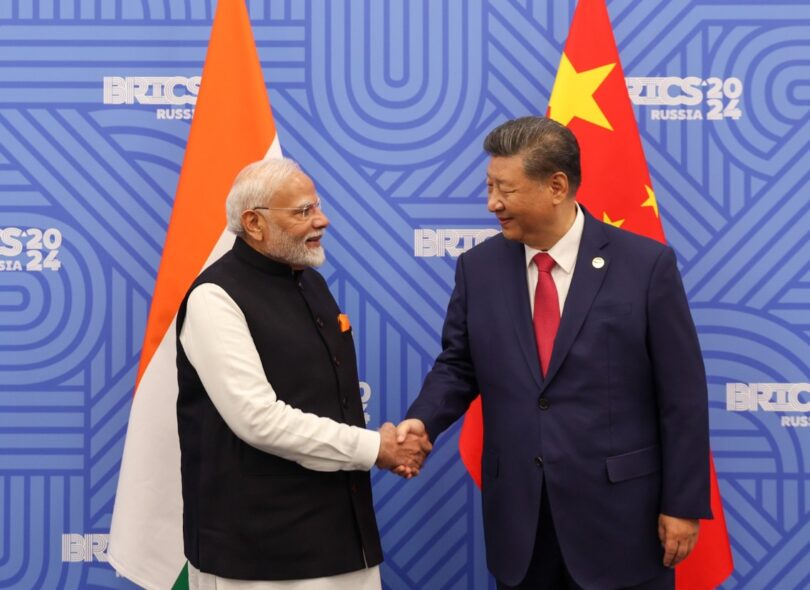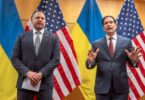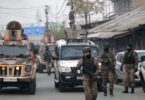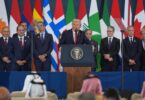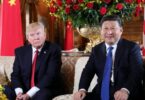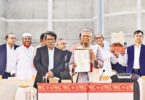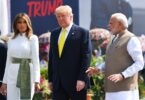Sunsets don't get much better than this one over @GrandTetonNPS. #nature #sunset pic.twitter.com/YuKy2rcjyU
— US Department of the Interior (@Interior) May 5, 2014
India-China agreeing to early meeting of the India-China experts level mechanism during the visit of Foreign Secretary Vikram Misri to Beijing in January 2025 was covered in these columns (https://www.thestrategicperspective.org/articles/guilt-pangs/). India wanted early resumption of the Kailash-Mansarovar Yatra. Mount Kailash is sacred to: Hindus – Lord Shiva lives and meditates atop this mountain; Buddhists – home of the Buddha Cakrasamvara; Tibetan Bon - spiritual seat of power; Jains - first Tirthankara ‘Rishabhanantha’ attained nirvana (freedom from rebirths) here. Hindus revere Lake Mansarovar as the earthly embodiment of Lord Brahma's creative mind. Buddhists see it as the source of Maya (Buddha's mother), and Jains honor it as the birthplace of Rishabhanantha.
Having annexed Tibet, China has periodically restricted Indian pilgrims’ access to Kailash-Mansarovar. In January 2017, China stopped Indian pilgrims going to Kailash-Mansarovar at Nathu La feigning landslides, which was a lie although in June a landslide occurred in Sichuan Province. But the real reason was the India-China standoff at the Doklam Plateau (Bhutan). India and China signed an agreement for pilgrimage to Kailash-Mansarovar from Nathu La on September 18, 2014 during the visit of Prime Minister Narendra Modi to China (https://indiandefencereview.com/china-breach-of-agreement-of-kailash-mansarovar-pilgrimage-confirms-chinese-cussedness/).
BREAKING: India distances itself from SCO Statement that condemned Israeli strikes on Iran; Indian foreign ministry says, "India did not participate in the discussions" on the statement https://t.co/73UwClEHzp
— Sidhant Sibal (@sidhant) June 14, 2025
Media was reporting that Modi would attend the 2025 SCO summit in China. But then India abstained from UNSC resolution for Gaza ceasefire, US President Donald Trump showed support for Pakistan, and India distanced itself from the SCO Statement condemning Israeli strikes on Iran. India’s dual abstinence is viewed as abdicating moral responsibility, not neutrality; more conspicuous with absence of morality in Indian politics, especially during elections. Glaring duplicity prevails in India, like unchecked sponsored media calling Mahatma Gandhi a Pakistan-loving jihadi, while Modi pays floral tributes at Rajghat.
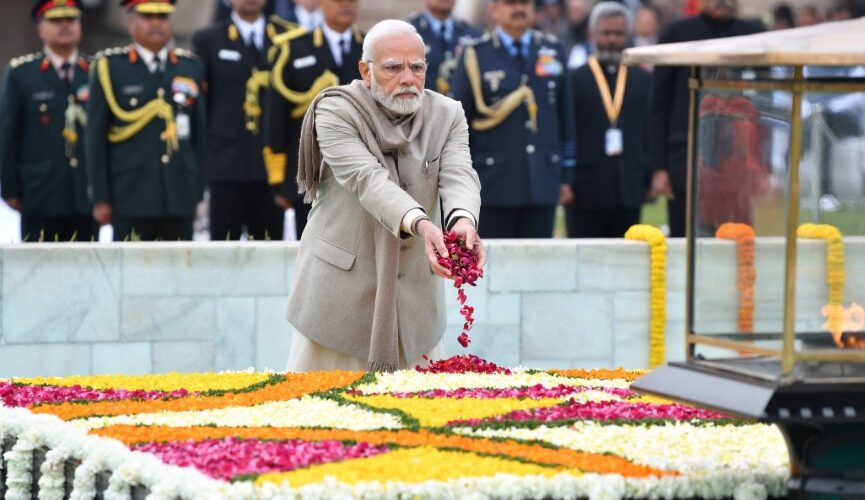
NSA Ajit Doval, at the 20th Meeting of the SCO Security Council Secretaries, met China's Vice-President Han Zheng. On June 23, Chinese Foreign Minister Wang Yi met Doval. Wang said China-India relations have made some positive progress. It is essential that both sides further enhance communication, build mutual trust, and work toward resolving practical issues. Only when the dragon and elephant dance together can there be a win-win outcome. China and India should properly handle sensitive issues and maintain peace and tranquillity in the border regions. Doval said India is willing to strengthen collaboration with China in multilateral fields and fully supports China's role as the rotating presidency of the SCO. India and China can make greater contributions to the international community. Doval also focused on the urgent need to counter terrorism. Both acknowledged the necessity of promoting overall development of ties, including enhancing people-to-people contacts for rebuilding trust following border tensions. Doval expressed anticipation for next Special Representative (SR) talks with Wang to be scheduled at a mutually convenient date in India.
🔹Chinese Foreign Minister Wang Yi, also a member of the Political Bureau of the Communist Party of China Central Committee, met with Ajit Doval, NSA of India and special representative for the India-China boundary question in Beijing on June 23.
— Xu Feihong (@China_Amb_India) June 23, 2025
🔹Wang said that China-India… pic.twitter.com/3whsS44Tu0
Pleased to know that the first batch of pilgrims has arrived at Lake Mapam Yun Tso (Manasarovar) in Xizang Autonomous Region, China. pic.twitter.com/M3thov3XYU
— Xu Feihong (@China_Amb_India) June 26, 2025
A delegation of Indian journalists was in China to cover resumption of the Kailash-Mansarovar Yatra after nearly six years of the pandemic and tensions in eastern Ladakh although China has allowed a limited number of pilgrims and future pilgrimages would depend on whims and fancies of China.
Defence Minister Rajnath Singh attended the SCO Defence Ministers’ meeting in China on June 26. He didn’t sign the joint statement that didn’t mention the Pahalgam massacre and mentioned Balochistan. Rajnath said, “Some countries use cross-border terrorism as an instrument of policy and provide shelter to terrorists. There should be no place for such double standards. SCO should not hesitate to criticise such nations”. Rajnath also met his Chinese counterpart and spoke of the need to solve complex issues through a structured roadmap of permanent engagement and de-escalation (https://indianexpress.com/article/explained/explained-global/china-this-week-sco-iran-pak-taiwan-brics-10092707/).
On April 1, 2025 (75th anniversary of commencement of India-China diplomatic ties), Chinese President Xi Jinping congratulated President Draupadi Murmu, saying China and India's relationship should take the form of a "Dragon-Elephant tango". Xi said the neighbours should find ways to coexist peacefully and he is ready to deepen communication and coordination in major international affairs, and jointly safeguard peace in border areas (https://www.hindustantimes.com/india-news/xi-jinping-s-dragon-elephant-tango-message-to-president-murmu-on-india-china-relations-101743506443379.html).
The statements of Xi, Wang Yi and Rajnath must be viewed in the backdrop of China reiterating over the past few years that the border-settlement issue be kept separate from India-China relations. In Operation ‘Sindoor’, India won the war but lost the narrative, notwithstanding aircraft losses due to political micromanagement.
But the opposite was the case in Easter Ladakh during 2020 - India won the narrative but lost the war. China redrew the Line of Control (LAC) and blamed India for aggression, including the Galwan clash; because India failed to accuse China of aggression and Rajnath told Parliament not even one inch of territory was lost. Ironically, the government has failed to explain why we vacated Kailash Range in our own territory, giving strategic advantage to China. The calls for de-escalation are empty rhetoric because India and China have strengthened respective positions in Eastern Ladakh, which is the ‘new normal’ (https://m.thewire.in/article/security/eastern-ladakh-border-presence-china-military-new-normal/amp).
"The emperor is naked!"
— Harmeet KKaur (@HarmeetKKaur) June 30, 2025
Modi 3.0
Modi’s Hollow Vishwaguru persona,
Diminished at Home, Diminished abroad .
Hartosh Singh Bal and Sushant Singh, discuss how Narendra Modi’s projected image as a “vishwaguru” is visionless and merely a spectacle aimed at his nationalist fanbase… pic.twitter.com/CuQ02iZ8Aa
The Quad foreign ministers meeting in Washington DC has condemned the Pahalgam massacre. India’s mainstream media is hailing this as a Big Win for India, hiding the fact that none blamed Pakistan. Same goes for EAM Jaishankar, Shashi Tharoor and multiple delegations India sent to 32 countries (but none to observer countries, dialogue partners and members of SCO). It is amusing to see Rajnath and Doval in Beijing unable to directly name Pakistan for terrorism. India fails to acknowledge that terrorism is the currency of power for the US, China and others; even Israel admits using ISIS. Who are we trying to preach when Pakistan is backed by the US and China. We should also drop the illusion that Trump pull Pakistan away from China other than securing cooperation against Iran. One view is our foreign policy is retarded to only impressing India’s population. India is failing to give its point of view forcefully, except empty rhetoric on terrorism. Here again India failed to demand Pakistan to hand over terrorists before agreeing to ceasefire in Op ‘Sindoor’ (https://www.thestrategicperspective.org/op-eds/focus-external/).
BREAKING:
— World Affairs (@World_Affairs11) June 30, 2025
China, Russia, Iran and Pakistan to hold closed door meeting under SCO, will not invite India due its differences with Pakistan and Iran. pic.twitter.com/zjSVXUDWf7
China, Russia, Iran and Pakistan are holding a closed-door SCO meeting, where India is not invited. Also, China, Pakistan and Bangladesh have formed a nexus for replacing SAARC and getting other South Asian nations to join the new grouping. (https://www.indiatoday.in/world/story/china-pakistan-bangladesh-meeting-regional-seeks-replace-saarc-multilateral-organisation-india-south-asia-afghanistan-kunming-2748301-2025-06-30). A former Governor of Manipur says India must win over neighbours or lose out (https://www.tribuneindia.com/news/comment/india-must-win-over-neighbours-or-will-lose-out/). Would the hierarchy listen when India’s foreign policy is being painted as the best ever? Government focus remains on economy and defence exports although defence budget allocations and equipping of the military remains poor.
India-China bilateral trade in FY 2024-25 was USD 127.7 billion, with the trade balance in China’s favour reaching a record high of USD 99.2 billion. In a token show of strength, India has imposed anti-dumping duty on six Chinese products: PEDA; Acetonitrile; Vitamin-A Palmitate; Insoluble Sulphur; decor paper; and Potassium Tertiary Butoxide (https://economictimes.indiatimes.com/news/economy/foreign-trade/india-imposes-anti-dumping-duty-on-four-chinese-chemicals/articleshow/122043899.cms?utm_source=contentofinterest&utm_medium=text&utm_campaign=cppst). But China is choking Indian industries by leveraging dominance over supply chains, complex regulations and hidden barriers (https://swarajyamag.com/economy/china-is-choking-indias-factories-and-india-has-no-quick-fixes). Modi’s pet project, Mumbai-Ahmedabad high-speed rail corridor, is in limbo because three huge tunnel boring machines (to arrive in India starting October 2024) still await clearance in China. This may be one reason why Gautam Adani, Founder-Chairman of Adani Group recently met the Chinese ambassador in New Delhi. China has also eased its urea export ban, but not for India. Despite government calls to shun Chinese products, bronze panels for the Rs 3,000 crore Sardar Patel statue in Ahmedabad were imported from China. Now Parliament is informed that four days after the Galwan Clash (where 20 Indian soldiers were killed), India took Rs 9,202 crore loans from a Chinese-controlled bank for a prime minister’s welfare scheme!
Tibet remains the bone of contention how China looks at India. For the swearing-in of the Modi Government in 2014, members of the Tibetan Government-in-exile were invited. During Xi Jinping’s India visit in the same year, pro-Tibet demonstrations were organized outside Hyderabad House where Modi and Xi were holding discussions. However, Modi appeared mellowed after his China visit in 2015. According to senior BJP leader Subramanian Swamy, China distributed Chinese maps at the SCO summit in Uzbekistan (October 2022 - attended by Modi and Xi) showing Ladakh and Arunachal Pradesh part of China with Chinese names, and Russia adopted Chinese names in their maps (https://www.timesnownews.com/india/modi-betrayed-india-bjps-subramanian-swamy-slams-pm-over-chinese-official-maps-that-include-ladakh-arunachal-pradesh-article-94894382). Despite this, New Delhi couldn’t muster guts to tell China India doesn’t consider Tibet a part of China.
Dalai Lama turns 90 on July 6, 2025, with the year-long celebrations of his birthday beginning same day. There was speculation he may soon reveal his successor, but he said on July 2 that the Dalai Lama Trust has sole authority to identify his successor. This will create more friction in India-China relations, especially if the successor is in India. China’s war against Buddhism/genocide against Tibetans is on record: Buddhist temples shut, destroyed or converted to prisons; religious statues destroyed, even using explosives; scores of monks/youth self-immolated in protests; up to a million Tibetans killed/disappeared Chinese invasion of Tibet; even protected historical and cultural sites not spared (https://hillpost.in/2020/08/the-satanic-cult-of-xi-jinping/114511/). Panchen Lama is second to Dalai Lama in spiritual authority, whose key role is to identify reincarnation of the Dalai Lama. The Dalai Lama recognized Gedhun Choekyi Nyima as the 11th Panchen Lama, but he went missing in 1995 after China arrested him. Instead, China recognized Gyaincain Norbu as the 11th Panchen Lama. China will spare nothing to install its own Dalai Lama in the Potala Palace in Lhasa.
Finally, majority believe India-China reset will be on Chinese terms - same as Indo-US relations (trade deal included) on American terms; but indigenous media claiming ‘big win’ for India in both cases.
The author is an Indian Army veteran. Views expressed are personal.


